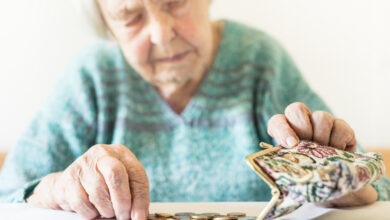“HAPPY BIRTHDAY TO YOU, HAPPY BIRTHDAY TO YOU!”

Those of us who are alive have a birthday every year, and most of us celebrate it in our own special way. It’s a bad sign to quit having birthdays because it seriously questions your viability. Some birthday celebrations are a big deal with games, party hats and horns, cake, ice cream, and presents from relatives you barely know. Others are simply an acknowledgement of the day. Some folks ignore birthdays altogether! I’m clearly in the “big deal camp” because any reason for a party is good enough for me.
It’s really other people who make birthdays special, not ourselves. Unless, you’re a card-carrying narcissist, your birthday is remembered and celebrated by your parents, siblings, spouses, good friends, or your children. You don’t plan it; it’s planned for you! You just show up, play the guest of honor role, and enjoy yourself.
Birthdays are usually happy affairs, but unfortunately, there are a lot of folks whose birthdays bring back memories of a negative experience in their life. Imagine having a parent or sibling suffer a traumatic event on your birthday. That day would forever be a reminder of that tragedy and your day would never be the same. A trauma like that would forever taint your feelings about “your special day.”
Some folks take a nihilistic approach and ignore any mention or recognition of their birthday. For them it’s just another day they would prefer people ignore altogether. Something in their rearing has resulted in an attitude of denial and dismissal which hides the disappointment of not experiencing the attention they deserve at least one day a year.
Birthdays have been celebrated for centuries. To have a specific day recorded as your birthday, there must be a system that assigns names and numbers to each day. That system is called a calendar, and they didn’t exist until 8000 B.C., but it wasn’t until 3000 B.C., during Pharaoh’s reign that birthdays were first mentioned. Before calendars, birthdays could only be estimated, based on changes in the moon, the position of the sun, and changing of the seasons. Ancient Greek and Egyptian scholars had the curiosity and wisdom to take information from the seasonal changes in the environment and shape it into a calendar system still in use today. There was, then, a mechanism for remembering birthdays and determining a person’s age.
It was, again, the Greeks and Egyptians who used candles and noisemakers to ward off evil spirits believed to be present on the day of a person’s birth. Every year the ceremony was repeated on their birth-day to protect them from harm and bring good thoughts, wishes, and cheer to their life. It was the German’s who started putting candles on the cake, one for each year of life. Ancient Romans gave a special cake to any Roman man who lived to fifty years of age, and from there, the tradition of a birthday cake began. Early American settlers celebrated with fruit then, later, cake. It wasn’t until the 12th century, however, that women’s birthdays were celebrated.
Early Christians believed we are all born sinners and considered birthdays as celebrations of evil! But after the birth of Jesus, who came to bear our sins himself, Christians abandoned that belief and in the 4th century began celebrating birthdays. Over ensuing centuries, societies developed their own traditions and practices which changed individually as their populace evolved. Every culture has its own set of birthday celebration customs that haven’t changed much in my lifetime. Birthday celebrations have the same basic components—a birthday celebrant, family and friends who attend a social gathering for the celebrant, candles, cake, ice cream, food, and singing. The variable determinant is the age of the celebrant which is used to determine which of the birthday components are activated for the celebration.
People started giving birthday cards in the 19th century, but it was the Hallmark Corporation that promoted it to an entirely different level. I couldn’t find any information on how much influence The Hallmark Corporation had on the evolution of birthday celebrations, but I can’t imagine their influence wasn’t felt somewhere in the formation of the tradition. I would suspect that Hallmark has profited from birthday celebrations more than any bakery, department store, or candle maker. I don’t begrudge them that success because their products have brought joy to the birthdays of millions of people.
That’s a very brief and superficial history of birthdays. However, the real story about birthdays has nothing to do with, cake, ice cream, and presents. The real story actually is what goes on inside the minds of people who find birthdays tragic and painful, or have never had anyone take time to plan a celebration for them. The actual physical history is interesting, but has little significance when compared to the emotion felt by those who dread “their day.” The most important thing about birthdays is how it makes an individual feel and how they are able to cope with the stresses of that day. It can be a good time, a nightmare, or simply ignored.
The older we get, the type of celebration is less important than the fact that we celebrate it at all. Not having birthdays has a very negative connotation. I hope your family always acknowledges you on your day, and that you continue to have “Happy Birthdays” for many years to come.
References: https://www.pumpitupparty.com/blog/how-did-the-tradition-of-birthdays-begin/




I found this information most interesting. Thank you for taking the time to research this topic.
Thank you for reading it and commenting.